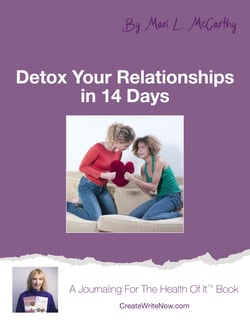Some life experiences are so painful we would like to run away from them, if only that was an option.
But our most devastating experiences have to be lived through- and that’s where journaling really helps.
In this post, I want to look at healing a broken heart, whether you feel your heart is simply wounded, or shattered into a thousand pieces. No matter how bad you feel, you have the capacity to heal and move on; your journal can help you in this process.
I’ve suffered from gentler forms of heartbreak on a couple of occasions, and from a life-shattering, major heartbreak once, when my first marriage went wrong and we had to divorce. So I know how difficult these times can be.
But healing begins with simply having the will to carry on, and promising yourself you will do the hard work of learning to live again without the person you thought was the centre of your world. In making this decision, you can be sure there is a healing force in the Universe (call it God, or a Higher Power) and this power is on your side.
I suggest you use your journal in two different ways simultaneously, to heal a broken heart.
First, use it to express your grief and pour out all of your painful emotions and bitter thoughts. Write, and write, and write some more. You may feel raw anger and agonising rejection. Don’t try to repress these thoughts and feelings; get them out of your head and on to the paper. Shred or burn the pages afterwards, as a symbol of letting go of the hurt.
Then write a constructive plan for getting your life back on track. Make a list of things you need to do to minimise the immediate pain, such as removing physical reminders of your ex, and cutting off social media links, so you won’t be bombarded with daily reminders of them on Facebook.
Then make another list of all the ways you can help yourself to move on. I have always found that learning something new and enjoyable can be a great distraction from sad and negative thoughts. And plenty of exercise helps boost your natural feel-good chemicals, so think about what type of physical activity you enjoy. Use your journal to explore the possibilities for rebuilding your life: new skills, new places to visit, and new ways to pamper yourself. Be very kind to yourself.
Plan some fun: think of what makes you laugh. Laughter is a wonderfully healing gift. It boosts your immune system. So even if you don’t feel like it, do it anyway.
Answer this question in your journal: Who am I, and how can I write a new, exciting chapter in my life? What are my good points? How can I build on my strengths? How can I create the life I really want?
Healing from a broken heart takes time, but it’s possible. Spend some time journaling every day, pen-to-paper, and process your emotions. Then put your journal down and take action. Take the steps you need to take and remember these words from the classic Gloria Gaynor song, I Will Survive:
“I've got all my life to live
And all my love to give and I'll survive”
 Lyn Alderson is a professional journalist, blogger and author, based in the English Midlands.
Lyn Alderson is a professional journalist, blogger and author, based in the English Midlands.
She has 25 years’ experience of writing news and features for UK newspapers and magazines.To find out more about Lyn and her work visit http://lacopywriting.co.uk.
If you want to find out more about the health benefits of keeping a journal, check out Lyn's e-book The Write Therapy: How Keeping a Journal Can Make You Happier, Healthier and More Productive available from the Amazon Kindle Store



Leave Comment